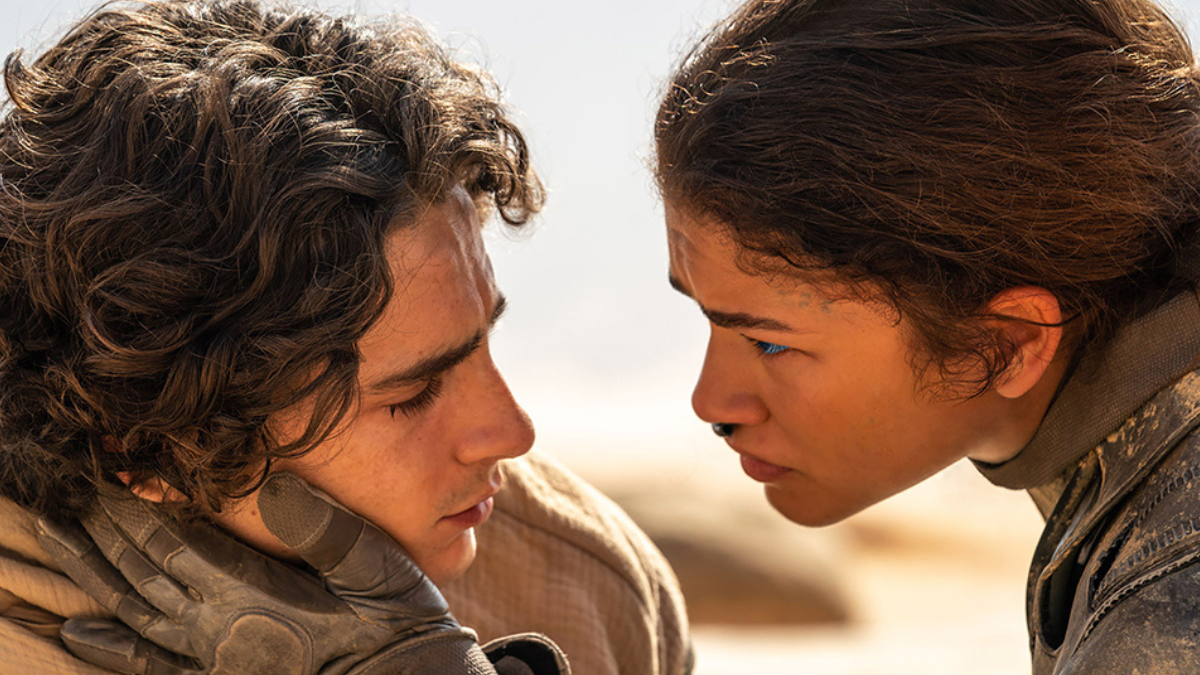Even the most die-hard of cinephiles will tell you that truly great films are few and far between, but it seems directors are also feeling the pang of mediocre movies these days.
Between Madame Web, the 1,100th installment of The Fast and the Furious, and whatever it was that Jennifer Lopez was going for with This Is Me… Now, the state of film might seem pretty dire, and Dune director Denis Villeneuve would tend to agree.
In a recent interview with The Times of London, Villeneuve said that “movies have been corrupted by television,” largely because the latter format prioritizes dialogue while film should be about “pure image and sound.” So how exactly has the silver screen been tarnished by the small one? Let’s investigate Villeneuve’s claims.
Denis Villeneuve’s claims about movies and TV, explained
Ahead of the premiere of Dune: Part 2, Villeneuve sat down with The London Times for a wide-ranging discussion on the state of cinema. The director said that he “hate[s] dialogue” and believes that some films overuse dialogue in reaction to television. “Dialogue is for theatre and television,” Villeneuve said. “Movies have been corrupted by television.” When asked whether the golden age of TV — which some would argue is still in progress — had spurred movie execs to copy its success, Villeneuve said “exactly.” The director continued, “I’m not interested in dialogue at all.” While there are multiple examples of great films with minimal dialogue — from Cast Away, to Drive, 2001: A Space Odyssey, and Blade Runner 2049 — one only needs to look at this year’s Best Picture nominees to know where Villeneuve is coming from.
Of course, the screenplays of films like Barbie, Poor Things and Oppenheimer are major factors contributing to their quality (Poor Things’ Bella Baxter speaks a mile a minute), but what sets them apart from television, as Villeneuve explains, is their cinematography. “I don’t remember movies because of a good line,” the director said. “I remember movies because of a strong image. Pure image and sound, that is the power of cinema.” It’s why Poor Things and Oppenheimer have Oscar nods for both Best Picture and Best Cinematography (and, funnily enough, Best Adapted Screenplay). It’s also worth noting that television shows can bring the “pure image and sound” that Villeneuve believes is reserved solely for movies — like The Handmaid’s Tale, Better Call Saul, Mindhunter and The White Lotus, to name a few.
In Villeneuve’s perfect world, the cinemas would be filled with “compelling movie[s]” that don’t have “a single word.” The director said if done properly, audiences would watch wordless films “but they won’t feel the lack.” It’s the entire conceit of a franchise like A Quiet Place, which prioritises sound design and remains impactful without needless exposition. Of course, there are always exceptions to Villeneuve’s rule. While he said Oppenheimer is a “mostly talking” movie, he praised it for bringing “something substantial” and described it as “meaningful content.” The parallels in the epic scale of films by Villeneuve and Christopher Nolan are clear, but one must wonder whether, by Villeneuve’s terms, dialogue-heavy and smaller-scale films like The Breakfast Club, 12 Angry Men, or Reservoir Dogs should be considered any less “cinematic.”
It might be that Villeneuve is a better at the poetry of visuals than that of words — a criticism that’s been levelled at his films like Arrival before — but the genius of wordsmiths like Yorgos Lanthimos or Greta Gerwig should not be diminished if their craft relies a little more on dialogue than grand set design. Villeneuve’s opposition to television is what quashed plans for a HBO adaptation of The Son, a series he had flirted with and had even tapped Jake Gyllenhaal to star in. The director said he bought the adaptation as a miniseries, and that while the screenplays “were excellent,” the medium of television was too “far away from my sensibility.”
In any case, Villeneuve is no doubt thrilled about the critical response to Dune: Part Two, which is earning rave reviews mostly for its visuals and cinematography. It’s praise that aligns with what the director believes movies should be, with some critics describing the sequel as the most visually stunning blockbuster ever made. Word is still out about whether there will be a third installment in the franchise, an idea Villeneuve has hinted at in the past, but should a threequel ever hit our screens, we can safely assume that it will be light on dialogue.











Published: Feb 26, 2024 05:44 pm